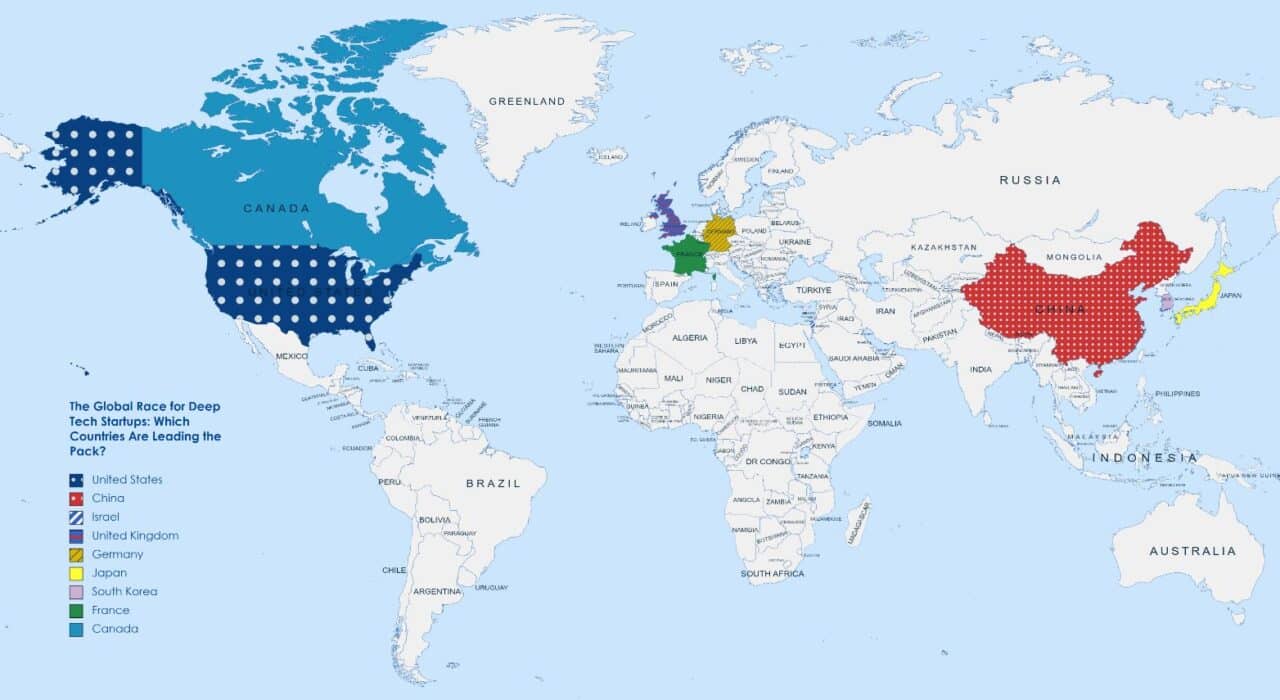Which Countries Are Leading the Pack?
Deep tech startups are those that develop and commercialize ground-breaking technologies in areas such as artificial intelligence, quantum computing, robotics, and biotechnology. These startups are highly innovative and have the potential to revolutionize industries and change the way we live our lives. In recent years, deep tech startups have become increasingly popular among investors and entrepreneurs. In this post, we will explore which countries have the most deep tech startups.
United States
The United States is home to the most deep tech startups in the world. Silicon Valley, located in the San Francisco Bay Area, is a hub for tech innovation and attracts entrepreneurs from all over the world. Many of the world’s leading deep tech startups, such as SpaceX, Tesla, and Palantir, are based in the United States. The country also has a highly developed venture capital industry, which provides funding for startups.
China
China is rapidly catching up with the United States in terms of the number of deep tech startups. The country has a large pool of highly skilled engineers and scientists and invests heavily in research and development. Many of China’s deep tech startups are focused on areas such as artificial intelligence and robotics. The Chinese government has also launched several initiatives to support the growth of startups, such as the Made in China 2025 plan.
Israel
Israel has a thriving tech startup ecosystem and is home to many deep tech startups. The country has a highly educated workforce and a strong culture of innovation. Israel’s deep tech startups are focused on areas such as cybersecurity, artificial intelligence, and biotechnology. The country also has a well-developed venture capital industry providing funding for startups.
United Kingdom
The United Kingdom has a rapidly growing tech startup ecosystem and is home to many deep tech startups. The country has a highly educated workforce and a strong tradition of innovation. The UK’s deep tech startups are focused on areas such as artificial intelligence, biotechnology, and quantum computing. The well-developed venture capital industry provides funding for startups.
Germany
Germany is home to many deep tech startups, particularly in areas such as robotics and biotechnology. The country has a highly skilled workforce and a strong tradition of engineering excellence. Germany’s deep tech startups are supported by a well-developed venture capital industry and several government initiatives aimed at promoting innovation and entrepreneurship.
Other countries having a significant number of deep tech startups include France, Canada, Japan, and South Korea. These countries have highly skilled workforces, strong research and development capabilities, and well-developed venture capital industries.
In conclusion, the United States is currently the global leader in deep tech startups, followed closely by China, Israel, the United Kingdom, and Germany. However, the landscape is continuing to be dynamic with new countries entering the race while others drop back due to financial constraints or geopolitical developments.



